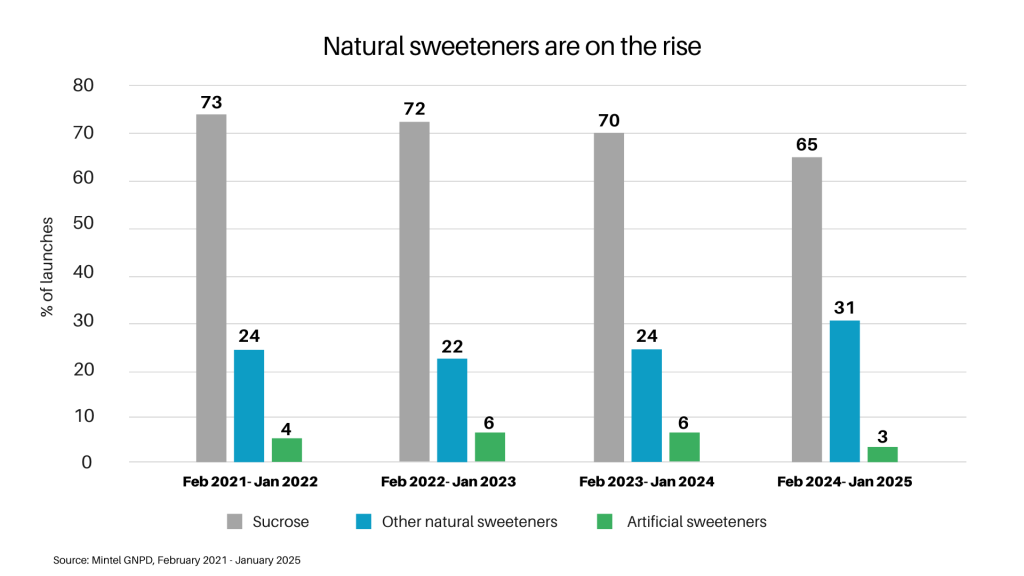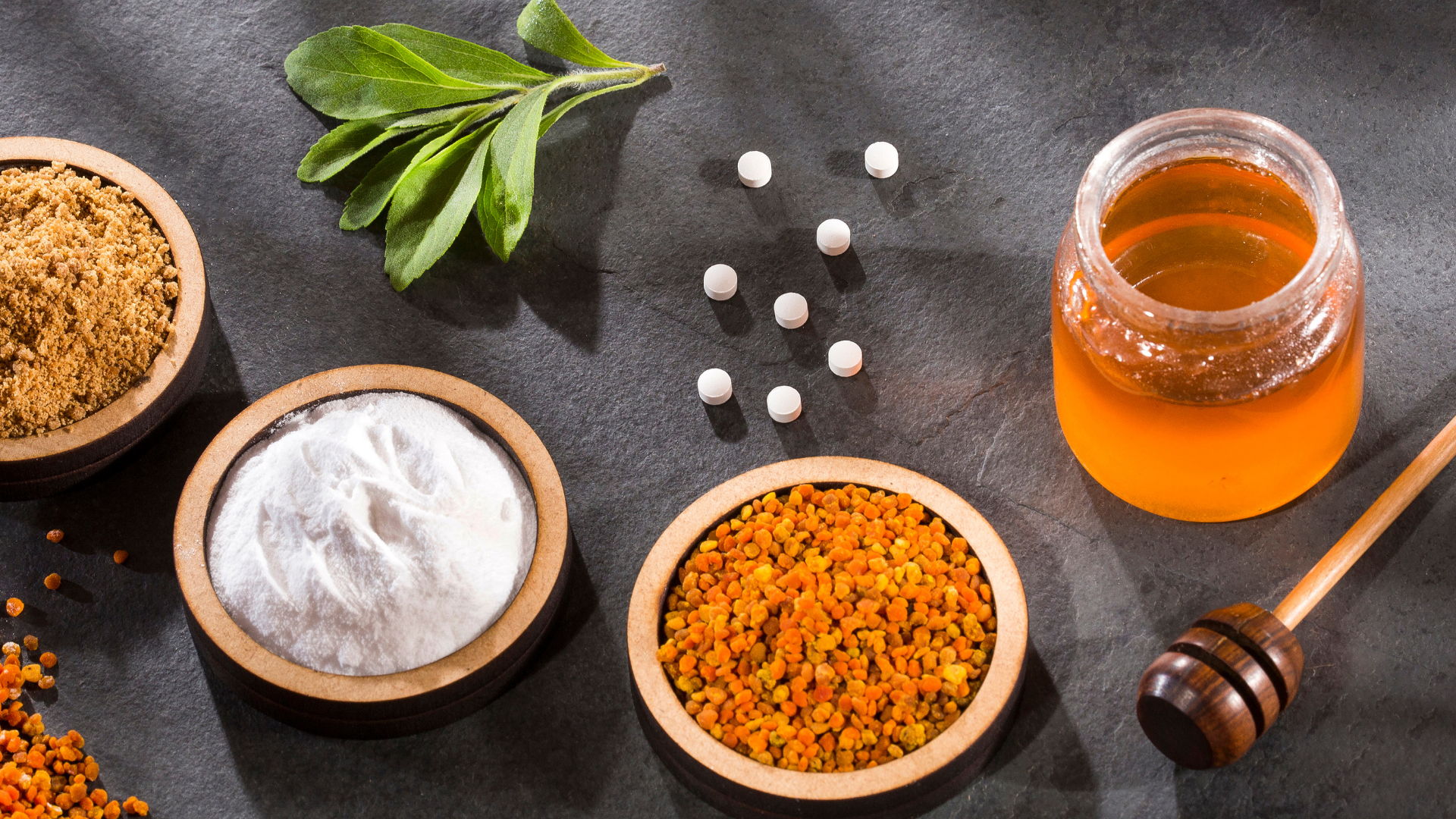Consumers today are increasingly concerned about the health risks associated with refined sugar, such as weight gain, obesity and diabetes. As a result, many are rethinking their sugar intake and turning to healthier alternatives. Natural sweeteners have rapidly emerged as the preferred choice for health-conscious individuals seeking to reduce sugar intake without compromising on taste.
While all sweeteners offer a solution for sugar reduction, many consumers remain cautious about artificial options due to potential health concerns. This has driven a shift towards plant-based and minimally processed natural sweeteners, which are perceived as safer and more wholesome than both artificial sweeteners and refined sugars.
What are Natural Sweeteners?
Natural sweeteners are derived from plant, fruits or other natural sources and undergo minimal processing compared to artificial sweeteners or refined sugars. They provide varying levels of sweetness and may offer additional nutritional benefits. Common examples include stevia, monk fruit, and erythritol.
Popular Natural Sweeteners
- Stevia
- Extracted from the leaves of the Stevia rebaudiana
- Contains steviol glycosides (stevioside and rebaudioside A), which are 200–400 times sweeter than sugar but contribute almost no calories.
- FDA-approved and widely used in beverages, snacks, and baked goods.
- Erythritol
- A low-calorie sugar alcohol found naturally in fruits like pears and grapes.
- 70% as sweet as sugar but does not spike blood glucose or insulin levels.
- Gentle on digestion compared to other sugar alcohols.
3. Monk Fruit
- A zero-calorie sweetener derived from the Siraitia grosvenorii
- Contains mogrosides, antioxidants that provide sweetness 150–200 times stronger than refined sugar.
- Research suggests anti-inflammatory benefits (1), making it a functional sweetener.
Market Trends: Growing Demand for Natural Sweeteners
According to Mintel GNPD, the Asia Pacific region has seen a 7% increase in natural sweetener adoption between 2023/24 and 2024/25, reflecting a broader shift toward sugar reduction.
- 39% of Chinese consumers prefer baked goods made with natural sweeteners over traditional sugar.
- Food and beverage brands are increasingly reformulating products to highlight “no added sugar” or “naturally sweetened” claims.

Conclusion
As health-conscious consumers continue to seek clean-label, low-sugar alternatives, natural sweeteners are poised for strong market growth. Whether you’re developing a new product or reformulating an existing one, incorporating stevia, erythritol, or monk fruit can align with evolving consumer preferences.
Interested in innovative sweetener solutions? Contact us today to explore how we can support your product development!
References
- Li, Y., Zou, L., Li, T., Lai, D., Wu, Y., & Qin, S. (2019). Mogroside V inhibits LPS-induced COX-2 expression/ROS production and overexpression of HO-1 by blocking phosphorylation of AKT1 in RAW264.7 cells. Acta Biochimica Et Biophysica Sinica, 51(4), 365–374. https://doi.org/10.1093/abbs/gmz014




